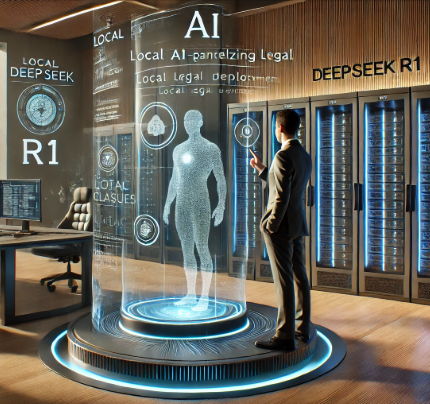This week, we welcome back Ed Walters, Chief Strategy Officer at vLex, to discuss the latest advancements in legal AI. The conversation covers the evolving role of AI in legal research, the integration of multimodal AI capabilities, and the ethical considerations surrounding the technology. With the rapid pace of innovation in AI-powered tools, Walters provides insights into how vLex is adapting and pushing the boundaries of legal technology. His perspective underscores the importance of structured legal data, security measures, and law firms leveraging their proprietary data for competitive advantage.
One of the key topics discussed is the impact of reasoning models in AI-powered legal research. Walters notes how tools such as OpenAI, Gemini, and Anthropic’s latest models are transforming legal workflows by enabling more sophisticated research capabilities. These tools allow for more human-like interactions with AI, increasing efficiency in knowledge work by reducing non-billable research time. Walters emphasizes that while these advancements are impressive, legal professionals should always verify AI-generated content, ensuring that human judgment remains the final step in legal analysis.
A particularly exciting development discussed in the interview is vLex’s recent integration of multimodal AI capabilities, enabling the analysis of audio and video files. Walters explains how this feature allows lawyers to transcribe and analyze depositions, oral arguments, and client intake interviews securely within Vincent AI’s SOC 2 Type 2 compliant environment. This breakthrough provides legal professionals with enhanced efficiency in document review and litigation preparation, reinforcing vLex’s commitment to transparency and usability. The discussion highlights how these features bridge the gap between traditional and AI-powered legal workflows, streamlining processes while maintaining high-security standards.
The conversation also explores vLex’s integration of docket alarms into litigation workflows, allowing legal professionals to generate comprehensive profiles of opposing counsel and judges. This tool enables lawyers to analyze patterns in case filings, settlement tendencies, and motion success rates. Walters emphasizes that the ability to synthesize vast amounts of structured litigation data provides firms with a strategic advantage. However, he also acknowledges the ethical implications, stressing the need for transparency in AI-generated insights to maintain the integrity of legal practice.
Finally, Walters shares his thoughts on the future of legal AI, predicting a shift toward the integration of law firms’ proprietary data with public datasets. He highlights vLex’s new initiative, Vincent Studio, which allows firms to create bespoke AI-driven workflows tailored to their specific needs. This, he argues, is the next frontier in legal tech, where law firms transition from passive AI adoption to active AI-driven innovation. As the industry continues to evolve, Walters reinforces the idea that while AI enhances legal practice, human expertise and oversight remain irreplaceable. His insights provide a compelling vision of how legal professionals can leverage AI to augment, rather than replace, their legal expertise.
- Vincent Studio Request: beta@vlex.com
Listen on mobile platforms: Apple Podcasts | Spotify | YouTube
Blue Sky: @geeklawblog.com @marlgeb
Email: geekinreviewpodcast@gmail.com
Music: Jerry David DeCicca
TranscriptContinue Reading Beyond Legal Research: Ed Walters on vLex’s Next Big Leap in Law










